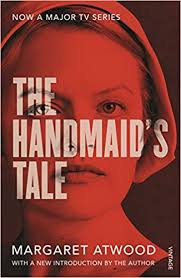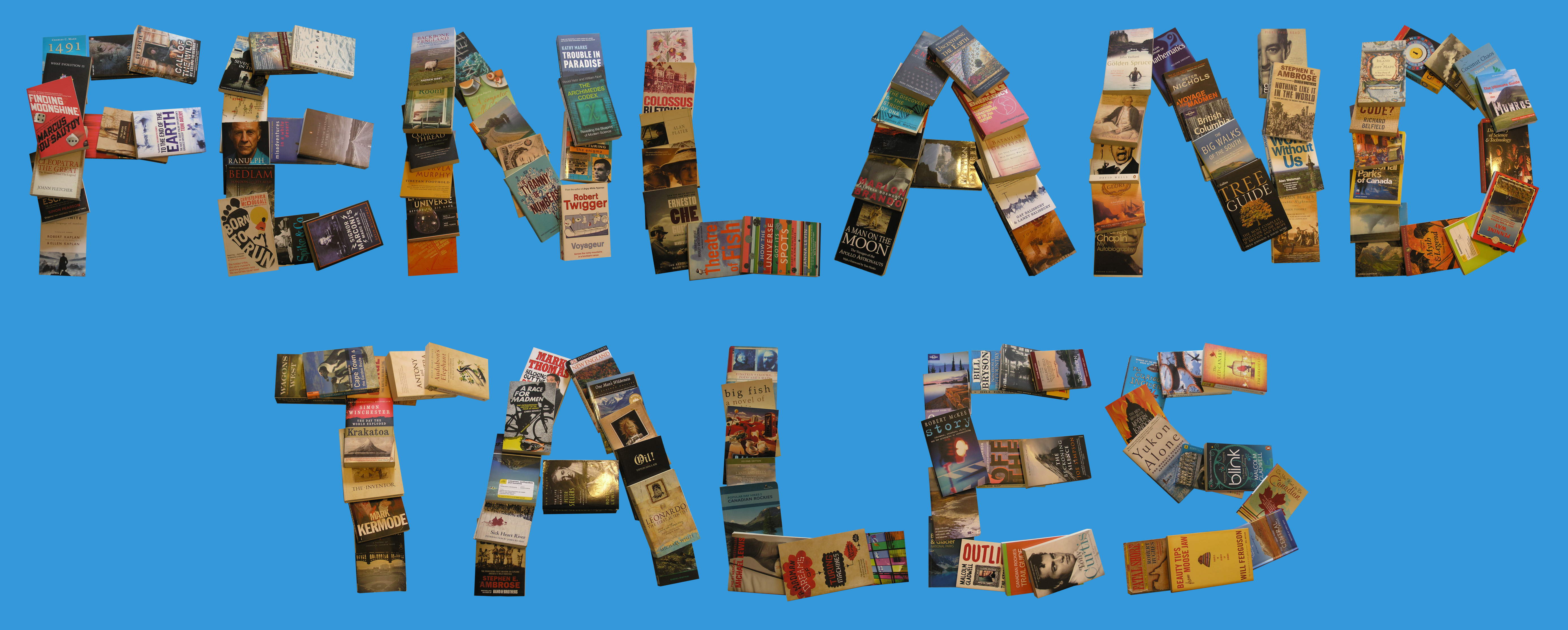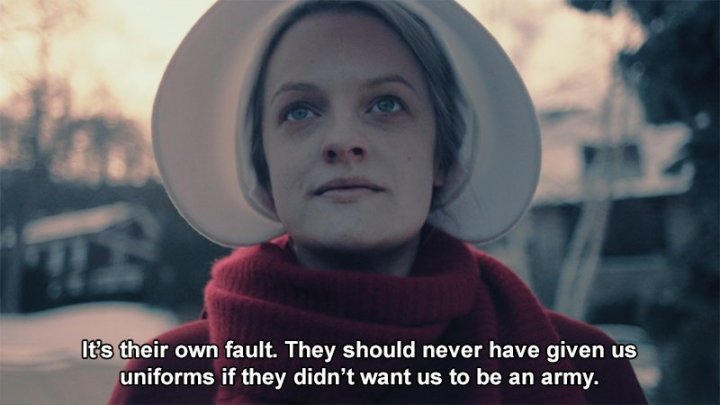I first read The Handmaid’s Tale in high school, which makes it a good choice for my ‘book I read in high school’, arf.
Having watched the TV show last year and being both fascinated and a bit scared about the nearness of some of the experiences shown, I was a bit puzzled as I remembered very little of the characters in the book, as they are on the telly. I assumed that the production had changed a lot, added details, people etc from the book in order to make it more up to date, a bit closer to the bone. I read a couple of reviews where the assertion was, in fact, that the show was pretty close to the book, which told me pretty clearly that I should read it again!

This review will be talking about the book (besides that bit at the beginning). I will try to keep spoilers to a minimum.
Canadian born Margaret Atwood wrote the novel, which was published in 1985. It was a literary success from the outset, in that it won the 1985 Governor General’s Award, 1987 Arthur C Clarke Award and a runner up for the 1986 Booker Prize. A quick look at Wikipedia shows a prolific array of over writing spanning a staggering seven decades and counting and covering everything from short stories, anthology editing and graphic novels. I was lucky enough to see Atwood speak as part of her visiting writership at the UEA, 2013-14. In the flesh she is as in her writing – insightful, clear and terrifying, at times.
For those of you who haven’t read this, or seen any of the adaptations, including the 1990 Natasha Redgrave starring film where Pinter wrote the script, a brief summary of the plot follows.

tee by Retro Republic https://www.teepublic.com/t-shirt/1696283-nolite-te-bastardes-carborundorum-handmaids-tale-t
It’s the not too distant future, and Offred is a Handmaid in the state of Gilead. Her role is to be a surrogate in a high ranking family, although this surrogacy arrangement is not a consensual one, seemingly from all sides. In a world where Handmaids where red and the wives wear blue, the chosen sides may not be as clear cut as they may seem. Offred had a name of her own once, but we are never told it. She lives her days in the house, summoned on a monthly basis to the bedroom, where Serena Joy, the Commander’s wife, acts as a horrifying lap to cushion Offred while her husband, attempts to impregnate Offred in an act of rape which is dressed up in Biblical garments, in more ways than one.
Fertility rates have gone down and decreased to the point where babies are few and far between. A passage in the Bible seems to refer to the a handmaid of Rachel, Jacob’s wife, who is given to Jacob when Rachel fails to conceive.
Everything in the book is fluid and unreliable, which makes it fascinating to read. Offred’s whole account is completely unsubstantiated. The book is told from her point of view, of course, but if we are to believe her she has no access to pens, paper or any other recording equipment. How then, can she have committed her experiences to be remembered? She herself says on a number of occasions that her stories are reconstructions. In the most difficult scenarios – where she goes to the Commander’s room alone for the first time, on recounting her last trip with her husband, she tells it from a couple of different angles and with the details changed. For me, this is both intriguing and frustrating. What really happened?
Time is fluid too. With no way to count the days, she has no passage of time to track her life beyond the Ceremony, by the phases of the moon. This is echoed in the names of the chapters – nearly half of them are simply called ‘Night’, while the others are equally shortly named, including ‘Nap’, ‘Household’ and ‘Salvaging’. Stark, to the point. Long term, I struggled to understand where she was on her own timeline, but the wider one too. She was in the first wave of handmaids, according to the epilogue. If we can believe her account, this house was her second posting with two years at each one, so perhaps 3 years as a handmaid? The training might have been a year or two before that, of course.
Fundamentally, it’s human nature to try to pattern spot, to build a framework around something to try to comprehend it, but actually, I don’t think it matters. We need to choose to take her word for it, or not.
This wasn’t an easy read, and it took a lot longer for me to finish than a book that size normally would. I think it’s because it’s a lot denser than it looks, and Offred’s voice is so strong that it does get to be oppressive – she’s the woman in the supermarket who always has a sad tale to tell. It’s an important one though – a caution at what happens when you let the bastards grind you down. Or maybe, when you let them in in the first place.

